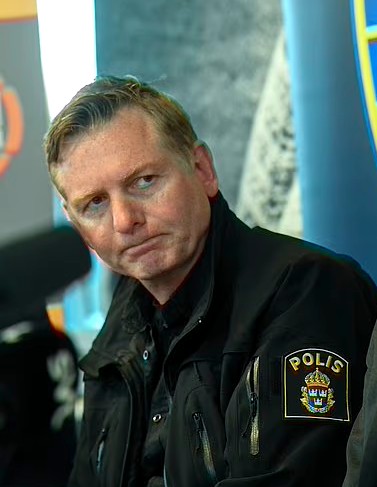Swedish former crime-club chief Fredrik Gardare has dropped a bombshell, alleging that multiple Premier League footballers are implicated in match-fixing—a claim grounded in evidence he says was seized during a 2021 raid but never pursued further by authorities. (The Sun, GB News)
Gardare, who formerly headed a Swedish police unit tackling organised crime in sport, said his team raided an illegal casino in late 2021. Among the phones confiscated, one device reportedly contained extensive Telegram messages showing players discussing manipulations of match events—including yellow cards, corners, and other betting-relevant occurrences in both European leagues and international Nations League matches. (The Sun, GB News)
Despite what Gardare calls “the clearest case you could have,” the investigation was abruptly shelved by Swedish police in December 2021, shortly before his unit was disbanded. Gardare remains frustrated, believing the evidence—which remains in police custody—should have prompted action by both the Swedish Football Association and the English FA. (The Sun, GB News)
In response to the claims, the Swedish FA’s integrity officer, Johan Claesson, confirmed receiving “general intelligence” from police in 2021, but noted it lacked sufficient specifics to act on, largely due to the secrecy of the ongoing investigation. (The Sun, GB News)
The English FA has not publicly confirmed whether it has received any of Gardare’s findings. Media reports indicate the FA is “keen to review” any material should it be shared by Swedish authorities. (GB News)
Built on Past Precedent
Gardare’s credibility stems in part from a previous 18-month investigation that uncovered match-fixing by ex-Manchester City midfielder Dickson Etuhu. Etuhu was found guilty of bribery in Sweden and banned for five years. (The Sun, GB News) His victory in that case underscores Gardare’s experience in prosecuting corruption in football.
Context and Global Trends
Spot-fixing, where specific elements of play are manipulated for betting purposes rather than entire match results, is a long-running concern. Historical examples include former Southampton captain Claus Lundekvam, who admitted to influencing routine events like corner or throw-in direction during the late 1990s—prompting a FIFA investigation at the time. (Inside World Football, FOX Sports)
Moreover, Europol’s 2013 “Operation VETO” identified organised crime syndicates in Asia manipulating hundreds of matches across Europe. Though many involved cases in lower divisions, they underscore the persistent vulnerability of football to gambling-driven crime. (Wikipedia)
Sweden itself has recently reinforced its legal framework against match-fixing. In December 2024, the country ratified the Macolin Convention—the only binding international treaty against manipulation in sports. Sweden also introduced legislative changes in 2023–2024 requiring the exchange of data and transparency among sports bodies, gambling operators, and regulators to combat match-fixing. (Portal, iGB, SBC News)
Questions Now Facing Football Authorities
Gardare’s revelations raise urgent questions: What do Swedish authorities know—and why was such alarming evidence not pursued? Can the FA or international bodies act now based on intelligence that remains undeveloped and perhaps incomplete? And what protections exist—or should be strengthened—to prevent future breaches of integrity?



